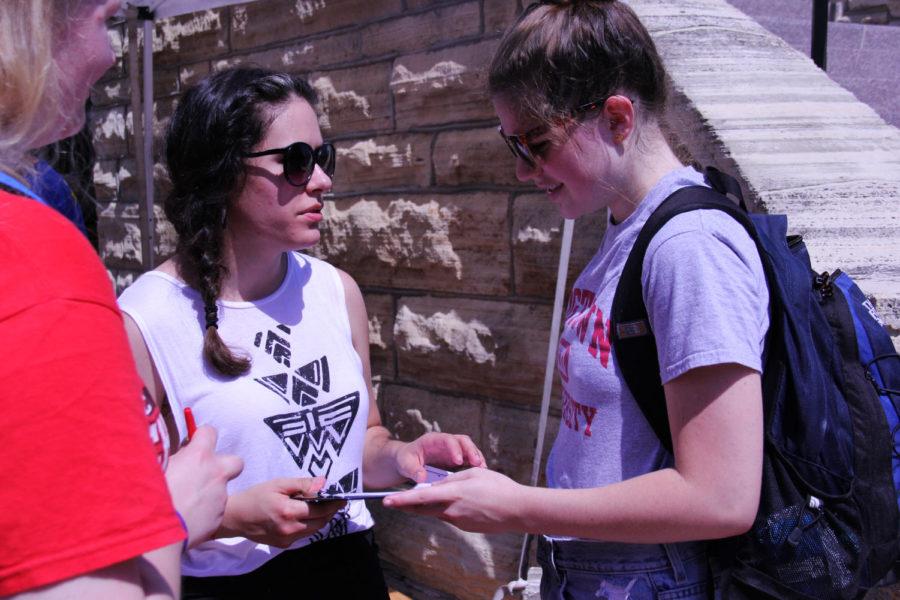Women’s Equality Day celebrated on campus
August 27, 2013
More than 40 students went to the Plaza of Heroines at Catt Hall on Monday to celebrate Women’s Equality Day and were able to register to vote.
The day celebrates the 1920 passage of the 19th Amendment to the Constitution, which granted women the right to vote. The celebration — established in 1971 by Congress at the hands of Rep. Bella Abzug — also calls attention to women’s continuous efforts toward equality.
Leaders from the Carrie Chapman Catt Center for Women and Politics, League of Women Voters of Ames and the Margaret Sloss Women’s Center joined forces to bring awareness of Women’s Equality Day and registering students, both women and men, to vote.
“We want them to register to vote and understand the importance of voting and then the events that are coming up,” said Linda Murken, president of the League of Women Voters of Ames. “The LWV started with a goal of educating voters.”
“People have marched, been jailed and have died to get everybody the right to vote. … It is very easy to take for granted.”
Kristine Keil, public relations and student programs coordinator for the Center for Women and Politics, led the organization of the event.
“We want students to know it is important to vote,” Keil said. “It hasn’t always been that way.”
Voting rights constantly are being changed.
“Section 5 of the Voter’s Right Act passed in 1964 — the Supreme Court just struck that down, and Congress needs to act to update that so it can pass constitutional musters so we have protection,” Murken said.
Women’s Equality Day is not only a day for the celebration of equality but also the celebration of voting rights.
After Section 5 of the Voter’s Right Act was struck down, some states tried to pass voter ID laws that were in violation of the law before the Supreme Court decision was made.
“The newly passed ID laws make it more difficult for disabled and older people to register to vote,” Murken said. “Not everybody has a driver’s license and some places you have to drive hours to go get records, which you have to pay for, that you need to get a voter ID.”
General Election Day is Nov. 5.

















